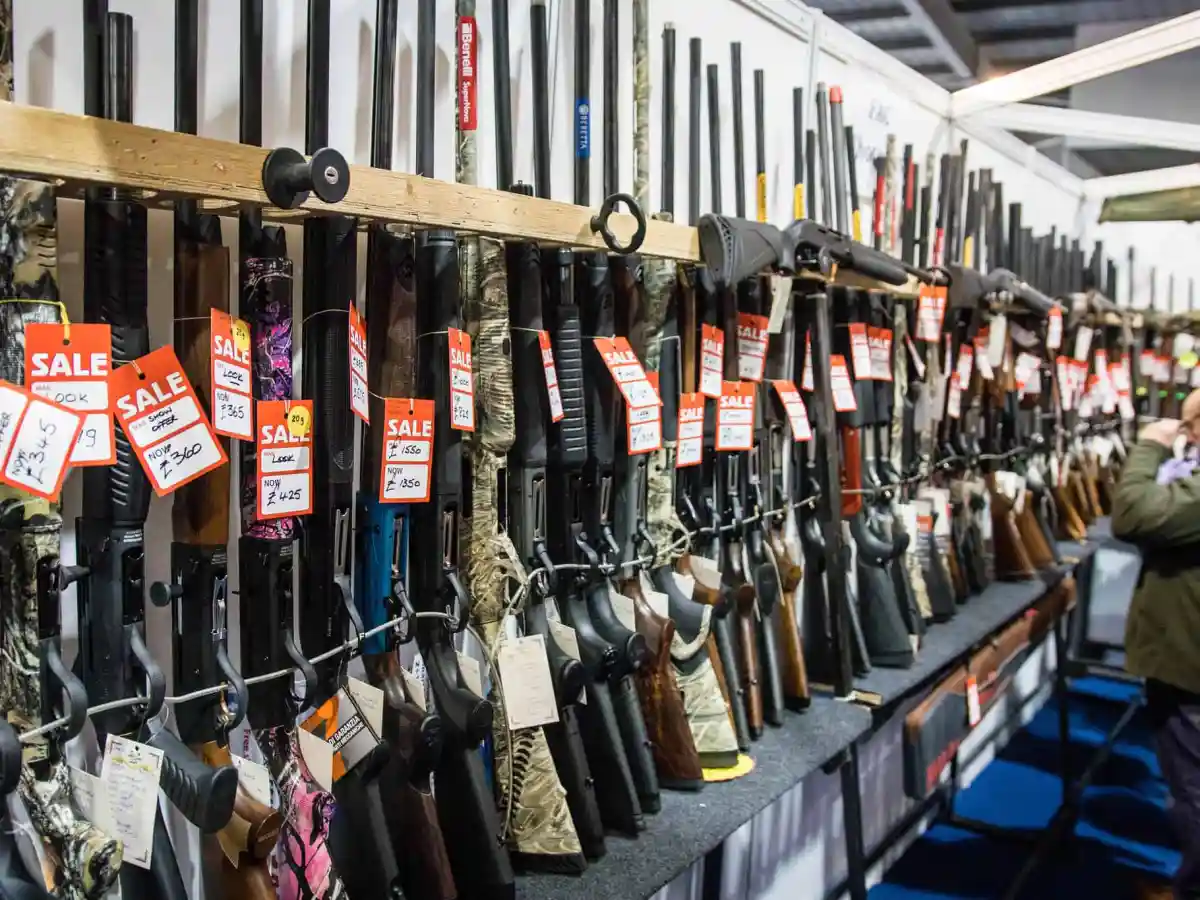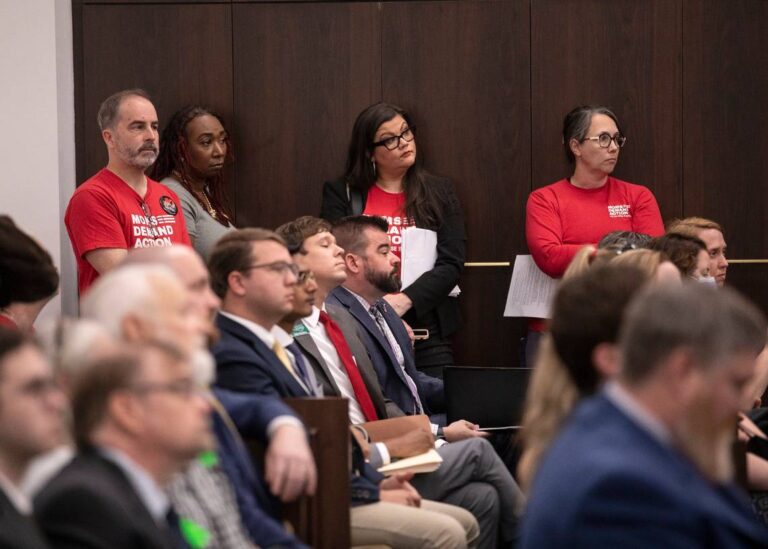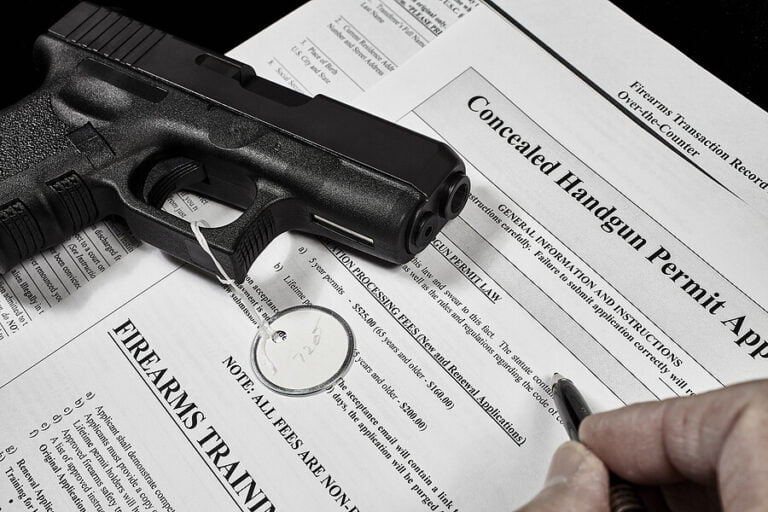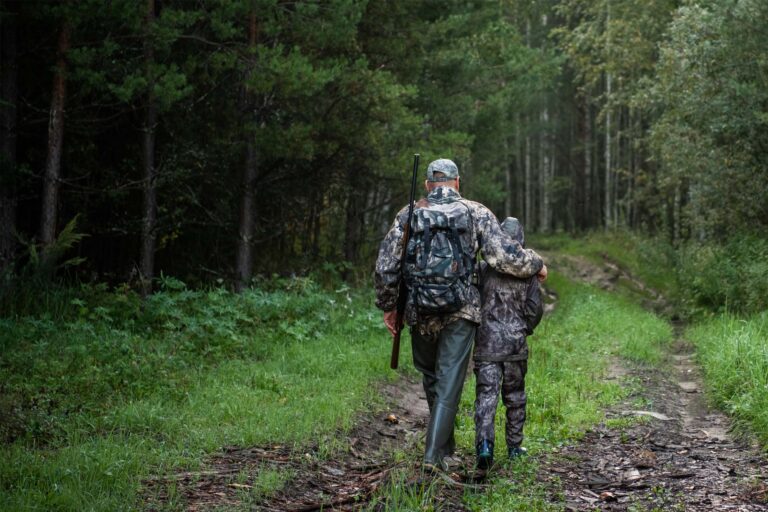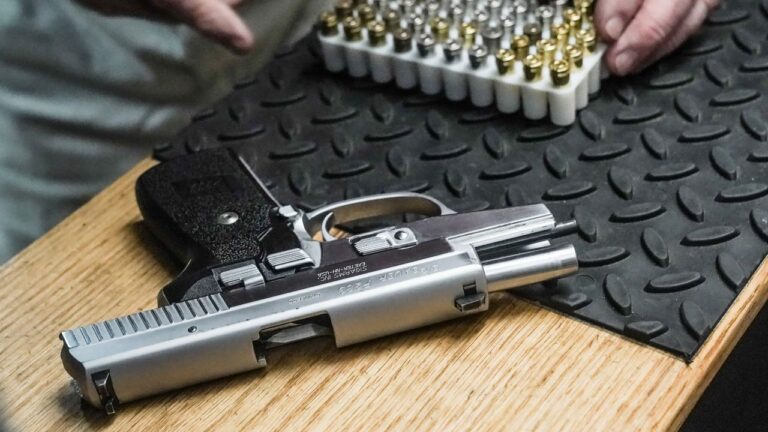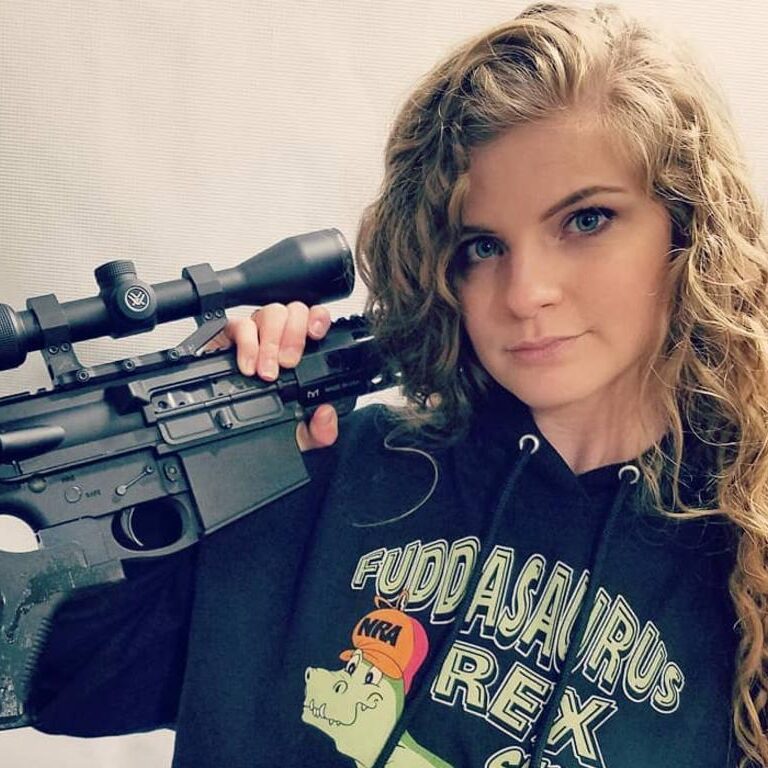North Carolina Gun Laws
North Carolina is known for its relatively unrestrictive approach to gun laws and operates on a “Shall Issue” basis for concealed carry permits. In this article, we will explore the key aspects of North Carolina’s concealed carry laws, including who is eligible to carry, where carry is allowed, and the state’s reciprocity agreements with other states.
Constitutional Carry in North Carolina
North Carolina is not considered a constitutional carry state, meaning individuals must obtain a concealed carry permit to legally carry a concealed handgun.
Open Carry in North Carolina
Open carry is permitted in North Carolina without a license or permit for individuals who are 18 years or older and legally allowed to own a firearm. However, it’s important to note that some counties in North Carolina may regulate open carry within their borders, restricting it in certain public areas like sidewalks, public roads, or public buildings.
Concealed Carry in Vehicles
North Carolina allows concealed carry within a vehicle if the individual possesses a valid North Carolina Concealed Handgun Permit (CHP). Without a CHP, individuals can only carry a handgun openly in their vehicle or keep it in a locked container away from their person, excluding the glove box.
Concealed Carry in State Parks
With a valid North Carolina CHP, individuals are allowed to carry concealed handguns in state parks. However, it’s important to note that firearms are prohibited in visitor centers, and any land owned by the U.S. Army Corps of Engineers also restricts firearms possession.
Concealed Carry in Restaurants
North Carolina allows concealed carry within restaurants for individuals with a CHP, as long as they do not consume any alcohol whatsoever.
Enforcement of No Weapons Signs
North Carolina recognizes “No Weapons” signs as having the force of law. Individuals are prohibited from concealed carry in establishments displaying such signs.
Duty to Inform Law Enforcement
North Carolina must inform law enforcement language in its statutes. Individuals with a concealed carry permit must notify a law enforcement officer that they are carrying a concealed handgun when approached on official business.
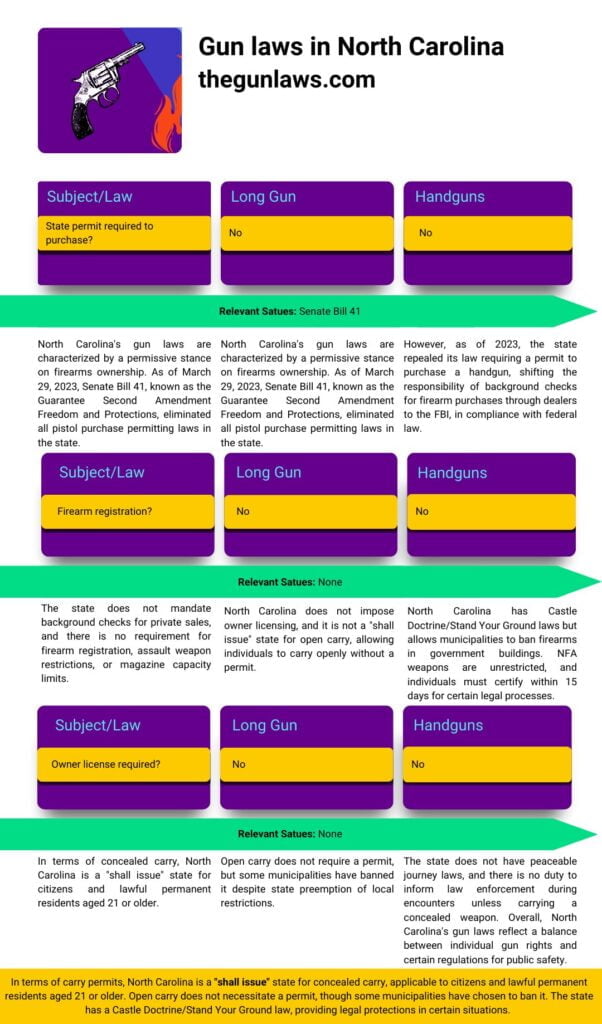
North Carolina CCW Reciprocity List
States Honoring CCW Permits from North Carolina
- Alabama
- Alaska
- Arizona
- Arkansas
- California (Restricted Reciprocity)
- Colorado
- Connecticut
- Delaware
- Florida
- Georgia
- Hawaii (Restricted Reciprocity)
- Idaho
- Illinois (Restricted Reciprocity)
- Indiana
- Iowa
- Kansas
- Kentucky
- Louisiana
- Maine
- Maryland (Restricted Reciprocity)
- Massachusetts (Restricted Reciprocity)
- Michigan
- Minnesota (Restricted Reciprocity)
- Mississippi
- Missouri
- Montana
- Nebraska
- Nevada
- New Hampshire
- New Jersey (Restricted Reciprocity)
- New Mexico
- New York (Restricted Reciprocity)
- North Dakota
- Ohio
- Oklahoma
- Oregon (Restricted Reciprocity)
- Pennsylvania
- Rhode Island (Restricted Reciprocity)
- South Carolina
- South Dakota
- Tennessee
- Texas
- Utah
- Vermont
- Virginia
- Washington
- Washington D.C (Restricted Reciprocity)
- West Virginia
- Wisconsin
- Wyoming
States Not Honoring CCW Permits from North Carolina
- California
- Connecticut
- Hawaii
- Illinois
- Maryland
- Massachusetts
- Minnesota
- New Jersey
- New York
- Oregon
- Rhode Island
- Washington D.C
How Reciprocity Works in North Carolina
North Carolina honors concealed carry permits issued by any other state. 38 states recognize a North Carolina permit, with six of those states honoring only the residential permit.
Reciprocity Agreements in North Carolina
North Carolina has signed reciprocity agreements with 36 other states. For an official list of these states, you can visit the Attorney General’s website.
Where Is CCW Allowed in North Carolina?
Places Allowed
- State parks
- State and national forests
- Roadside rest areas
- Vehicle
- Parade (with permit)
- Funeral (with permit)
- School campus (with a permit, must remain locked in the vehicle, cannot be carried on school grounds)
- All areas of the state except those listed as Off-Limits
Places Not Allowed
- Law enforcement office or facility
- Detention or correctional facility
- Building housing state offices
- Any public or private school building or bus, campus, grounds, recreation area, athletic fields, or other property used or owned by an educational institution
- Schools, public or private, all levels, including universities (gun can remain locked in the vehicle with a permit)
- Any places of assemblies such as a picket line, demonstration, parade, or funeral procession (parade or funeral carry is allowed with a permit)
- Any private premises where carrying a concealed handgun is prohibited
- State Capitol Building, the Executive Mansion, the Western Residence of the Governor, or on the grounds of any of these buildings
- Any place where alcoholic beverages are consumed or sold (applies to restaurants if posted)
- Any person consuming alcohol or under the influence of controlled substances or alcohol
- Any place where carrying firearms is prohibited by Federal Law
North Carolina Conceal Carry Laws
Open Carry
Open carry is legal in North Carolina without a permit or license. However, certain places are designated as Off-Limit areas, and local governments may place limited restrictions on open carry in specific locations.
North Carolina Gun laws Alcohol
It is illegal in North Carolina to carry a concealed weapon while consuming alcohol or while intoxicated. Openly carrying firearms while under the influence is also restricted by law.
North Carolina Gun laws Concealed Weapons
North Carolina allows carrying concealed handguns by permit holders, or concealed long guns without a permit. A pistol purchase permit or concealed carry permit is required to conceal carry a handgun.
Carry in Vehicle
A person without a CCW permit can carry a loaded handgun in a vehicle if it is not concealed and visible, and they have no felony convictions. The current definition of concealed is if the handgun cannot be readily seen by a person approaching and the gun is readily accessible.
A handgun under the front seat or in an unlocked glove box or console is illegal. A handgun openly displayed or in a locked glove box, locked console, or trunk is lawful. If you have a permit from North Carolina, you may carry a loaded concealed handgun within a vehicle.
Carry in State Parks
It is legal to carry concealed handguns in North Carolina state parks with a valid concealed carry permit.
Carry in Restaurants
Carrying a concealed handgun is allowed in restaurants as long as the establishment is not posted with a “No Weapons” sign.
Constitutional Carry
North Carolina does not have constitutional carry legislation in place.
No Weapons Signs Enforced
North Carolina law enforces “No Weapons” signs, and individuals may face legal penalties for entering private properties or businesses displaying such signs.
Must Notify Officer
North Carolina gun laws require individuals to inform law enforcement officers when approached on official business that they are carrying a concealed handgun. Carry permit holders are also required to carry their permit at all times while in possession of a concealed handgun.
Conclusion
North Carolina’s concealed carry laws follow a “Shall Issue” approach, allowing residents who meet certain criteria to obtain a concealed carry permit. While open carry is generally permitted, it’s essential to be aware of Off-Limit areas and local regulations.
Additionally, North Carolina has reciprocal agreements with many states, enabling concealed carry permit holders to carry in other states and vice versa. Staying informed about the state’s gun laws and adhering to them responsibly is crucial for maintaining a safe and lawful environment.
FAQs;
Q1: How do I obtain a concealed carry permit in North Carolina?
To obtain a concealed carry permit in North Carolina, you must be a resident of the state, 21 years of age, and have completed a firearms training course. Military personnel posted in the state may have exceptions.
Q2: Can I carry a concealed handgun within a vehicle in North Carolina without a permit?
Without a concealed handgun permit, individuals can only carry a handgun openly in their vehicle or keep it in a locked container away from their person, excluding the glove box.
Q3: Does North Carolina have constitutional carry?
No, North Carolina does not have constitutional carry legislation. A concealed carry permit is required to carry a concealed handgun.
Q4: Are there places where carrying a concealed handgun is not allowed in North Carolina?
Yes, there are places where carrying a concealed handgun is prohibited, such as schools, government buildings, places of assembly, and private properties with “No Weapons” signs.
Q5: Does North Carolina have reciprocity agreements with other states?
Yes, North Carolina has reciprocity agreements with 36 other states, allowing concealed carry permit holders from those states to carry in North Carolina, and vice versa.
Q6: Can I travel to North Carolina with my gun?
Yes, it is legal to transport firearms through and within North Carolina provided they are unloaded and in a closed container or the trunk. A person cannot have the gun accessible to occupants during travel.
Q7: Are AR-15s legal in North Carolina?
Yes, North Carolina state law does not restrict general possession of any class of long guns, including AR-15-style rifles. No permits, registration, or licenses are required by the state for rifles.
Q8: Are silencers illegal in NC?
Silencers are legal in North Carolina but require federal registration and taxation under the National Firearms Act. Illegally possessing an unregistered silencer is punishable as a felony.
